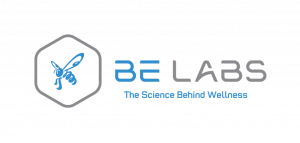Formula High in CBD, CBDV, and THCV Rouses Dormant Hair Follicles From Their Slumber
— John Satino, BS, RESEARCH COORDINATOR – MINOXIDIL & FINASTERIDE
GOLDEN, CO, UNITED STATES, September 18, 2023/EINPresswire.com/ — A breakthrough study shows that a topical hemp extract high in THCV, CBDV, CBD, menthol, and peppermint oil is associated with significant hair regrowth in both men and women with Androgenetic Alopecia (AGA). The 6-month clinical trial was conducted under the aegis of the National Institutes of Health (NIH) and further reviewed, expounded, and published in the esteemed International Journal of Trichology.
Androgenetic alopecia (AGA) is a common condition that occurs in both men and women and increases in prevalence with age. It is by far the most common cause of baldness. It generally starts in the third and fourth decades of life and significantly increases in prevalence in women after menopause. It is estimated that 50% of Caucasian men and 19% of Caucasian women are affected by the age of 50 years, and there is a lower prevalence and severity of the condition in Asian and African men. AGA may adversely impact a person both psychologically and socially, especially in women. The condition is characterized by follicular miniaturization in a specific pattern due to the effects of systemic androgens and genetic factors.
Only two medications, topical minoxidil, and oral finasteride are Food and Drug Administration (FDA) approved for the treatment of AGA. They can be used alone or in combination for synergistic effects. There have been no new medications FDA-approved in over 15 years. Finasteride blocks the conversion of testosterone to DHT and has proven useful in the treatment of AGA. However, finasteride is associated with a number of side effects, including sexual dysfunction that in some cases persists after ceasing therapy. Despite a small number of studies showing efficacy, the use of finasteride in women is controversial, and only off‑label, uncontrolled studies and anecdotal evidence have reported positive results. Finasteride treatment in premenopausal women is also problematic, requiring concomitant contraceptive treatment due to the teratogenic nature of the compound.
Topical minoxidil is the only known treatment that is effective in both men and women. It can help reverse the miniaturization of follicles, increase blood flow around follicles, and stimulate follicle movement to the growth phase; however, the mechanism of action is not fully understood. Minoxidil is generally well tolerated but is associated with side effects, including an initial increase in hair shedding and exacerbation of hair loss after withdrawal from treatment. Overall, these medications offer limited results.
The endocannabinoid system (ECS), discovered in the 1990s, is a system involved with maintaining cellular homeostasis by down-regulating the damaging inflammatory responses and upregulating regenerative processes. Cannabidiol (CBD), tetrahydrocannabivarin (THCV), and cannabidivarin (CBDV) are all phytocannabinoids found in varying quantities in hemp extract. These three cannabinoids have novel therapeutic effects on hair regrowth through the ECS. The method of action is different from and synergistic with current hair regrowth therapies. The three cannabinoids are fat-soluble and poorly absorbed past the epidermis, but topical application easily reaches hair follicles where they act as partial or full CB1 antagonists and agonists of transient receptor potential vanilloid-1 (TRPV1) and vanilloid receptor-4 (TRPV4). All these ECS receptors relate to hair follicle function. Blocking the CB1 receptor on the hair follicle has been shown to result in hair shaft elongation; in addition, the hair follicle cycle (anagen, catagen, and telogen phases) is controlled by TRPV1. The effects of CBD on hair growth are dose-dependent and higher doses may result in premature entry into the catagen phase through a different receptor known as TRPV4. CBD has also been shown to increase Wnt signaling, which causes dermal progenitor cells to differentiate into new hair follicles and maintains the anagen phase of the hair cycle.
This study was conducted on subjects with androgenetic alopecia (AGA), as a follow-up to a prior published study using hemp extract high in CBD without CBDV or THCV. That study showed an average 93.5% increase in hair numbers after 6 months of use. This subsequent study was done to determine if daily topical application of a topical formula (ALPHA VARIN Complex) containing a hemp oil high in CBD, THCV, and CBDV concentrations (BEVARIN) would result in improved hair regrowth in the area of the scalp most affected by AGA.
Dr. Gregory Luke Smith and researcher John Satino (LEAD RESEARCHER – MINOXIDIL, RESEARCH COORDINATOR – FINASTERIDE), conducted a case series study of 31 (15 men and 16 women, 27 Caucasian, 2 Asian, and 1 mixed race) subjects with AGA. They used a once-daily topical hemp extract formulation, averaging about 33 mg/day for 6 months. A hair count of the greatest area of alopecia was carried out before treatment was started and again after 6 months of treatment. The subjects were photographed in a standard manner before and after the study. The photographs were compared for improvements in “scalp coverage” by an independent physician. The qualitative scale included “none,” “mild,” “moderate,” and “extensive” improvement of scalp coverage.
The results revealed that all subjects had some regrowth and cosmetic benefits. This ranged from 31.25% (from 16 to 21 hairs) to 2000% (from 1 to 21 hairs). The average increase was statistically significant 246% (15.07 hairs/cm2 increase) in men and 127% (16.06 hairs/cm2) in women. There were no reported adverse effects. Independent review of the photographs revealed evidence of “mild” to “extensive” scalp coverage improvements in all subjects.
This case study suggests that topical hemp extract high in THCV, CBDV, CBD, menthol, and peppermint oil is associated with significant hair regrowth in both men and women with AGA. In general, men did better than women. This natural formulation was superior to oral finasteride, 5% minoxidil once daily foam, and CBD topical extract alone. Since this hemp extract works through novel mechanisms entirely different from both finasteride and minoxidil, it can be used in conjunction with these current drugs and would be expected to have synergistic effects. However, the safety and efficacy of this combination would need to be evaluated.
Visit BE LABS for more information.
David Anderson
BE LABS
+1 9702702574
danderson@belabsinc.com
![]()
Originally published at https://www.einpresswire.com/article/656298620/breakthrough-nih-clinical-study-on-hemp-oil-formula-for-hair-restoration-in-patients-with-androgenetic-alopecia-aga
The post Breakthrough NIH Clinical Study on Hemp Oil Formula for Hair Restoration in Patients with Androgenetic Alopecia (AGA) first appeared on Beauty Ring Magazine.






